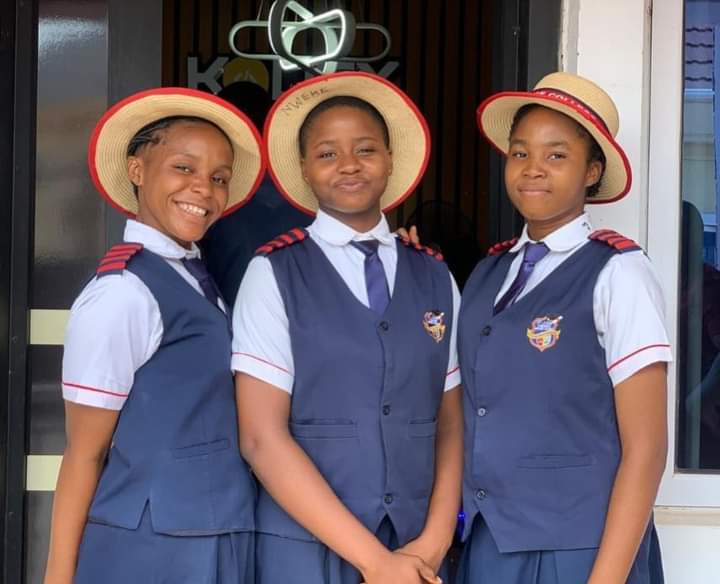Tech
3 Trends Set To Dominate African Mobile Apps In 2022


In 2021, the mobile industry in sub-saharan Africa continued to show incredible resilience against the impacts of Covid-19 and experienced high growth. Digital solutions have provided instrumental support for communities and businesses, boosting their transition into adopting a mobile-first approach to tackle most of the daily challenges across the continent, with fintech applications dominating this surge.
According to the Mobile Economy Report, 615 million people in Sub-Saharan Africa will subscribe to mobile services by 2025, that’s equivalent to 50% of the region’s population. As we enter into a new year, Daniel Junowicz, RVP EMEA & Strategic Projects, at leading mobile marketing analytics platform AppsFlyer, explores three key trends for mobile apps in Africa this year.
Investment into mobile applications will increase
A previous report launched by AppsFlyer and Google revealed a booming African mobile app market, propelled by a growing fintech space, a rise in ‘super apps’, and the COVID-19 pandemic amongst other factors.
Having analysed over 6,000 apps and 2 billion installs across South Africa, Nigeria, and Kenya, between Q1 2020 and Q1 2021, the report found that the African mobile app market showed strong growth, with overall installs increasing by 41%. Nigeria showed the highest growth, with a 43% uplift, followed by 37% in South Africa, and 29% in Kenya.
Africa’s opportunity to transform itself into a digitally focussed continent has been boosted by the digitalisation demands of the global pandemic. The momentum that many companies, most notably in the retail and finance industries, have carried on their digital transformation journeys shows no signs of slowing as we head into 2022. With Africa being hampered on the road to recovery from the pandemic by low vaccine rates, businesses will increasingly look to capitalise on a growing digitally conscious audience.
According to Briter Bridges, African startups raised $4.65 billion in disclosed funding last year, with 62% flowing towards fintech companies. Increasing web and in-person traffic towards mobile experiences will be a primary focus for traditional businesses as they expand their investment into mobile applications and mobile app marketing which is likely to account for more than half of the overall marketing budget.
Growth in mobile commerce will drive customer experience and brand loyalty
Industries like mobile commerce will continue to experience exponential growth going into 2022 in Africa as more consumers, especially previously non-tech savvy shoppers, become increasingly familiar with shopping online via mobile applications. Social commerce is predicted to take up more space in the overall mobile marketing space, therefore, developing an engaging user experience to enhance brand loyalty is highly important.
The growth that e-commerce apps experienced last year in Africa is showing no signs of slowing down. According to AppsFlyer’s State of eCommerce app marketing report, the African mobile app market continues to show strong growth with more people accessing goods and services online than ever before, with an increase of 55% on Android and 32% on iOS in 2021, and consumer spend climbing 55% overall.
The more consumers become familiar with mobile applications, the more they will respond to innovation and improvements in the UX, which in turn will drive a positive engagement with the brand. Enhancing the UX will be a critical focus for app developers and marketers as they pivot their improvements around more impactful copy, eliminating distractions and maximising creative design within the limited space of a mobile screen.
Intense competition for attention should push the market towards innovative mobile applications, which will certainly appeal to consumers and maintain a higher brand loyalty.
Fintech and social super apps will become more common
Super apps emerged from China, a country with a huge population, significant consumer purchasing power and underserved industries, not so dissimilar to Africa. Apps such as We Chat, a messaging app quickly expanded into other activities such as shopping, gaming, video sharing. This is a model that various social media companies in the West including Meta are looking to replicate by rolling out more and more features under their single apps.
Africa has the potential to be a significant market for Super apps, especially Fintech. By the end of 2021, there were 548 million registered accounts in the Sub-Saharan Africa region, over 150 million of which were active monthly; that’s 43% of the total active mobile money accounts in the world. These apps offer convenience to consumers, as they provide the basic infrastructure needed by the unbanked population and easy access to a wide range of services.
Kenya’s M-Pesa and Nigeria’s Opay have served as good examples in East and West Africa with at least another few emerging from last year, as well as Uber and Bolt’s expansions from car hailing apps into food delivery. So, as we move into 2022 the race to dominate the digital retail and consumer landscape for super apps is on! Expect to see businesses grow and diversify the capabilities of their apps through embedding their suite of features into people’s everyday lives.
Tech
Anambra School Emerges Winner In National Girls In ICT Competition With Groundbreaking VR Technology


St. John Vianney Science College, Igbariam, used their virtual reality project to conquer the National Girls in ICT Competition 2024, claiming the national championship title yesterday!
The National Girls in ICT Competition, organized by the Federal Ministry of Communication, Innovation and Digital Economy, is a technology innovation competition for all girls in secondary schools across Nigeria.
Their innovative project, M-Tag VR, allows users to explore iconic landmarks like Zuma Rock and learn about fascinating cultural aspects of Nigerian tribes. The girls, Immaculate Ebube Ikegwuonu, Camilla Anyadike, and Nweke-Nonso Oluchi, mentored by their coach, John Onuigbo, triumphed over teams from all 36 states.
The girls’ talent shone brightly throughout the competition. They started at the state level where they aced the Anambra state competition, then proceeded to conquer the Southeastern regional championship, defeating teams from Ebonyi, Imo, Abia, and Enugu, to make it to the national finals.
Rivers and Lagos states secured the second and third-place positions, respectively.
Tech
Google To Delete Billions Of Browser Records To Settle ‘Incognito’ Lawsuit


CNN reported that Google will delete billions of data records as part of a settlement for a lawsuit that accused the tech giant of improperly tracking the web-browsing habits of users who thought they were browsing the internet privately.
The suit was originally filed in 2020 and accused Google of misrepresenting the kind of data it collects from users who browsed the internet via “Incognito” private browsing mode in Chrome. Google agreed to settle the suit late last year, but the terms of the settlement were first disclosed in a filing on Monday.
As part of the settlement, Google must delete “billions of data records” that reflect the private browsing activities of users in the class action suit, according to court documents filed Monday in San Francisco federal court.
Google will also update its disclosure to inform users about what data it collects each time a user initiates a private browsing session. Google has already started implementing these changes.
For the next five years, Google will also let private browsing users block third-party cookies as part of the settlement. Google also will no longer track people’s choices to browse the internet privately.
Tech
NIN-SIM Linkage: NCC Directs Telecommunication Operators To Bar Non-Compliant Subscribers


The Nigerian Communications Commission (NCC) has confirmed that it would not be reviewing its deadline to bar owners of more than four SIM cards whose SIM registration data failed to match their National Identity Number (NIN) data.
A source within the Commission explained that the Commission’s position was hinged on its objective to clean the country’s SIM ownership database, and ensure that criminals could not take advantage of having multiple unlinked SIMs to carry out their nefarious activities.
“We are not standing back on our decision. March 29th is sacrosanct. Our resolve is hinged on the need to close in on the chaos of untoward ownership of multiple SIM cards with unverified NIN details. We have instances where a single individual has over 10,000 lines linked to his NIN. In some cases, we have seen a single person with 1,000 lines, some 3,000 plus lines. What are they doing with these lines?
“From our interim findings, the owners of these lines did not purchase them for decent purposes or to undertake legitimate activities.
“We have given them enough time to make the decision of which of their lines they want to keep, and discard the others. They did not. All lines in this category with unverified NINs will be barred. They will be then expected to go to their operators and decide which of the lines they want to keep, as well as submit correct NIN details.
“Some people would say they want to use it for car trackers, or for IoTs, but provision has been made for these services already. They are not under the ‘Max-4 Rule.’
“Across the world, no country allows you to have 1,000 SIM cards to make calls or texts.”
The Max-4 Rule announced by the Federal Government in April 2021 provides that telecom subscribers cannot have more than four lines per mobile network operator.
The NCC has also provided Mobile Network Operators (MNOs) an extension till July 31st 2024 within which they are expected to verify all NINs submitted by subscribers with four (4) or less SIMs, as well as bar those whose NIN fail verification with NIMC.
An authoritative source within the Commission who is familiar with the matter stated that the Commission’s management arrived at the decision at a crucial meeting it held today to review requests from the major Mobile Network Operators requesting for extension for the verification of NINs submitted.
The source also stated that the Commission is mulling the idea to approve an online application solution for MNOs where their subscribers whose NIN verification failed due to biometric mismatch can update their records on the app, while existing subscribers can register additional lines.
-



 Transport5 days ago
Transport5 days agoFederal Government To Launch Out 2700 CNG Buses, Tricycles Ahead Of First anniversary Of Tinubu’s Administration
-



 News4 days ago
News4 days agoNigeria Has Secured $2.25B World Bank Loan With An Interest Rate Of 1% – Minister Of Finance
-



 Tech1 day ago
Tech1 day agoAnambra School Emerges Winner In National Girls In ICT Competition With Groundbreaking VR Technology
-



 News2 days ago
News2 days agoNiger State Prisoners Run From Facility After Rainstorm Brings Down Part Of Fencing
-



 Spotlight2 days ago
Spotlight2 days agoNigerian Woman Breaks Guinness World Record With 55-Hour Interview Marathon
-



 News3 days ago
News3 days agoEFCC: Former Governor Of Kogi State, Yahaya Bello Fails To Show Up In Court, Says He Is Scared Of Arrest
-



 Finance3 days ago
Finance3 days agoGodwin Emefiele Disobeyed Direction Of Law With Intent To Harm The Public, He Printed ₦684.5M Using ₦18.9B Says EFCC in fresh charge
-



 Politics1 day ago
Politics1 day agoEnugu State Government Flag Off Palliative Distribution In The State






